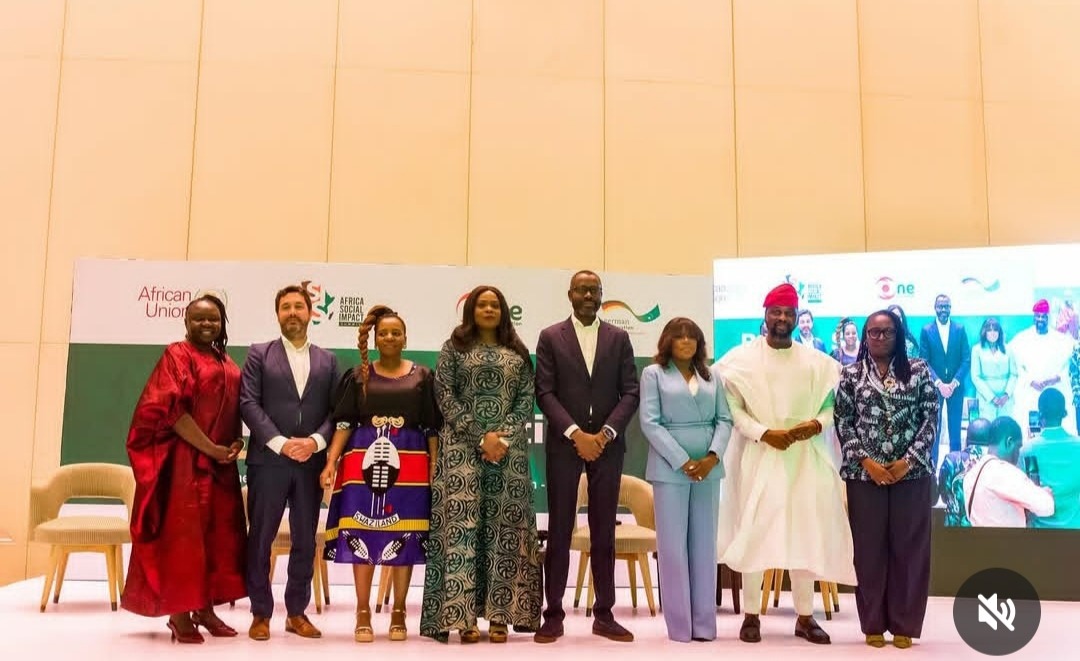AU, Sterling One Foundation, GIZ Mobilise Private Sector to Unlock $100bn for Women and Youth Empowerment in Africa

…High-level convening targets innovative financing and systemic reforms under the WYFEI 2030 Initiative
The African Union Commission (AUC), in partnership with the Sterling One Foundation and supported by the German Federal Ministry for Economic Cooperation and Development (BMZ) through the GIZ African Union Portfolio, has taken a bold step toward accelerating inclusive economic development for African women and youth.
A high-level convening, recently held in anticipation of the Africa Social Impact Summit (ASIS 2025), brought together influential public and private sector leaders to chart a course for unlocking $100 billion in private sector capital to support at least 10 million women and youth by 2030 under the Women and Youth Financial and Economic Inclusion (WYFEI 2030) Initiative.
Launched in 2022 as part of the African Women’s Decade on Financial and Economic Inclusion 2020–2030, WYFEI 2030 has become a leading multi-stakeholder platform dedicated to developing targeted strategies that dismantle systemic barriers to financial access and opportunity for women and youth across the continent.
The recent convening spotlighted the pivotal role of the private sector in financing gender- and youth-responsive innovations. Discussions centred on designing inclusive financial products, strengthening market infrastructure and data systems, and expanding technical and business development support for women- and youth-led enterprises to grow and scale.
In her opening address, Ms Prudence Nonkululeko Ngwenya, Director of the AUC’s Women, Gender and Youth Directorate, called for a structural transformation of resource allocation on the continent.
“A fundamental shift is needed to place women and youth at the centre of resource allocation, policy-making, and accountability,” she said. “The private sector is not a guest at this table, but a co-owner of the agenda, with WYFEI 2030 designed for co-investment, innovation, and scale to move from isolated impact to ecosystem change.”
Echoing this sentiment, Ms Olapeju Ibekwe, Chief Executive Officer of Sterling One Foundation, emphasised the urgency of intentional action. “Inclusion cannot be rhetoric. Women and youth are not peripheral to Africa’s economy. Any agenda that sidelines them is simply incomplete,” she said.
“Every day capital doesn’t reach them, opportunity is withheld from the continent. Partnerships must move beyond alignment and toward shared execution that reflects the realities of Africa’s investment landscape,” she added.
Dr Tobias Thiel, Director of GIZ African Union, also weighed in, describing the financial exclusion of women and youth as “both a moral and economic imperative.” He urged stakeholders to “move forward together, with boldness and resolve, to create an Africa where opportunity is truly equal, and potential is limitless.”
A central feature of the convening was a panel discussion featuring representatives from both public and private sectors.
The dialogue explored scalable models for channeling private capital into underserved markets, examining challenges in early-stage investment, deal origination, and data gaps that hinder effective financial flows to women- and youth-led enterprises.
Another highlight of the event was the introduction of EmpowerHer Africa, a new initiative presented by Dr Nadi Albino, Deputy Director of Partnerships at UNICEF.
The programme aims to connect 50 million adolescent girls and young women across Africa with financing, technology, and entrepreneurial resources through the WYFEI 2030 framework, accelerating the emergence of a new generation of women leaders and innovators.
This high-level engagement signals the beginning of a series of strategic dialogues led by the AU Commission’s Women, Gender and Youth Directorate, with Sterling One Foundation anchoring public–private sector collaboration continent-wide.
These interactions will seek to mobilise innovative financing, foster strategic partnerships, and synchronise private-sector efforts with Africa’s broader development goals.
By tackling entrenched barriers and fostering collaborative solutions, the WYFEI 2030 Initiative continues to shape a transformative agenda – one that promises measurable progress toward inclusive prosperity and economic empowerment for Africa’s women and youth.







